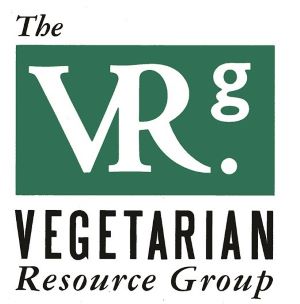The Vegetarian Resource Group Testimony to FDA (Food and Drug Administration) Concerning the Use of “Healthy” on Food Labels
The Vegetarian Resource Group (VRG) welcomes the opportunity to comment on the FDA’s proposal to update the definition for the implied nutrient content claim “healthy” to be consistent with current nutrition science and Federal dietary guidance.
The presence of the claim “healthy” on a food label provides a powerful message to consumers so careful consideration should be given to appropriate use of this word to avoid consumer confusion. We agree that all raw whole fruits and vegetables should automatically qualify to receive the implied nutrient content claim “healthy.” These foods are rich sources of fiber, vitamins, minerals, and phytochemicals; offer significant health benefits (1-5); and their consumption should be promoted. Similarly, we support the proposal that the saturated fat content of nuts and seeds (excluding coconut which is sometimes categorized with tree nuts) not contribute to the overall saturated fat limit when determining if a product should be eligible for a healthy claim. Nuts and seeds have repeatedly been shown to have beneficial effects on cardiovascular disease risk (6-8).
In the interest of simplicity and consistency we support the automatic qualification for the implied nutrient content claim “healthy” for fruits and vegetables that have been cut and packaged for sale and that do not contain ingredients other than fruits and vegetables.
Many people do not consume dairy products for a variety of reasons including allergy, intolerance, cultural practices, and preference. The inclusion of fortified non-dairy alternatives whose nutrient content is similar to dairy products in the list of products that are evaluated for the “healthy” nutrient content claim allows consumers to see that there are products identified as being “healthy” alternatives to dairy products. This, in turn, is respectful of cultural, philosophical, health-related, and other differences. Plant milks based on pea protein have been developed and have nutrient profiles that are similar to dairy milks (9,10). These products should be explicitly included in the list of fortified non-dairy alternatives instead of only listing fortified soy milk and yogurt.
A low percentage of the U.S. population meets dairy recommendations. Other foods can supply the nutrients found in dairy products. Alternative meal patterns should be developed that do not include dairy foods or non-dairy alternatives to address the needs of those who do not rely on these foods to provide protein, calcium, vitamin D, and other nutrients.
We question the proposal (p. 59191) that if a combination food has only one type of food from the beans, peas, and lentils subgroup, this one type cannot count towards both the vegetable and protein food requirement. If the amount of a food from the beans, peas, and lentils subgroup is sufficient to meet requirements for the protein group and the vegetable group, the food product should be considered to meet requirements for both these groups in the same way that a product containing two different kinds of beans/peas/lentils would.
We are concerned that allowing red and processed meats to bear a “healthy” claim without qualification will mislead consumers and contradict statements in Dietary Guidelines for Americans, namely that “dietary patterns characterized by higher intake of red and processed meat, sugar-sweetened foods and beverages, and refined grains are, in and of themselves, associated with detrimental health outcomes” (11). The proposed criteria for use of a “healthy” claim do not allow this claim to be used on products with a high content of added sugar or that contain predominantly refined grains. If there is any use of “healthy” on products based on or containing red or processed meats, it should be accompanied by a statement encouraging limiting portion sizes of these products.
Although not currently a consideration for the “healthy” claim, in view of the climate crisis and its impact on global health, we urge in the future that the FDA consider a broader definition of “healthy” to encompass sustainability and environmental effects of foods. We support the FDA allowing the use of the word “healthy” on the label of certain plant-based products in the context of indicating planetary health. For example, a label could say “our product supports a healthy planet” with a picture of the earth.
We are concerned with the unqualified use of “healthy” on 100% fruit juices. Although these products do not have the added sugar found in fruit drinks, sodas, and other beverages, they do not supply the fiber that is found in whole fresh fruits. This lack of fiber promotes over-consumption without the satiety response experienced with whole fruit consumption. A consumer seeing “healthy” on the label of 100% fruit juice may conclude that unlimited quantities of this food can be consumed as a part of a healthy diet. A qualified statement indicating a reasonable portion size and/or providing a nutrition message such as “whole fruit is a healthier choice” and/or saying “healthy juice” on qualified 100% fruit juices would provide a more nuanced message.
We also are concerned by the unqualified identification of oils, oil-based spreads, and oil-based dressings as “healthy.” These products are concentrated sources of calories with few nutrients. While their low content of saturated fat makes them a better alternative than solid fats, identifying them as “healthy” could lead to consumer confusion and over-consumption. Perhaps a system can be devised to provide a more nuanced message to consumers. Techniques such as indicating a reasonable portion size or a qualified phrase “healthy oil” would more clearly inform consumers that these products cannot be used in an unlimited fashion. Use of a single designation of “healthy” is likely to send an unintended message to consumers that oils can be used liberally.
Thank you for the opportunity to comment on this issue.

